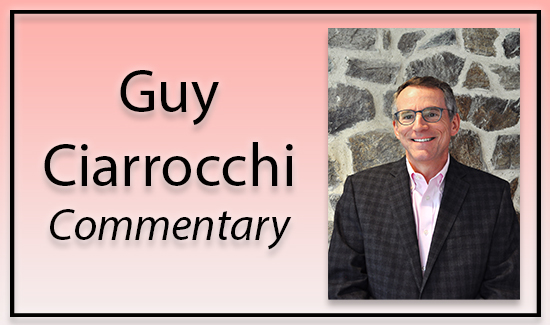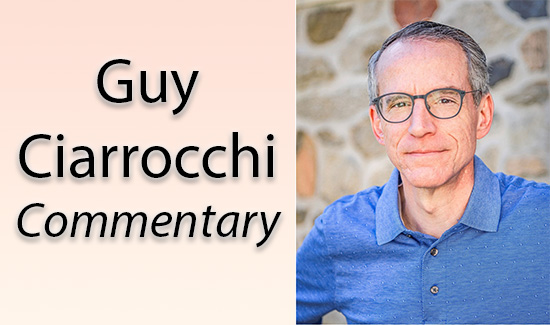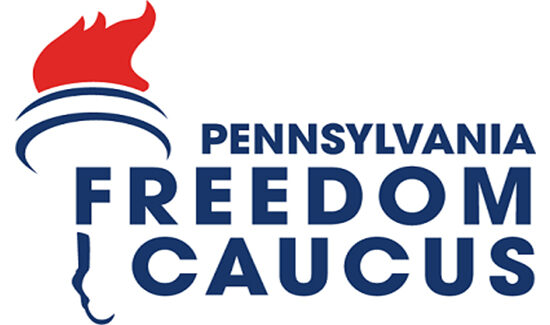The Parties Have Conflicting Visions for America

It’s so nice to have Representative Jones, who’s a Republican, and Representative Smith, a Democrat, with us today. Even though they belong to different parties, we know that we all want the same thing for our community, and our nation.”
As the former CEO of the Chester County Chamber, I presided at countless events where I said something like this. But no one says it anymore – no honest, thinking person, anyway. Because it’s not true.
Think for a moment about this past election, regardless of your personal views. The candidates had vastly different messages for very different constituencies.
In contested races in Allegheny County, Philadelphia City Council, my own county of Chester, and the Pennsylvania Supreme Court, Democrats campaigned on “protecting” abortion rights and voting rights. Republicans talked about fighting crime and upholding the “rule of law.” Democrats running for school board talked about the dangers of “angry” parents, fighting back against multi-gender bathrooms and certain books in the library. Republicans talked about parents’ rights and the problems of rising taxes and falling test scores.
The sad reality is that very few Republican and Democratic officials or candidates agree on the state of the country or what the actual problems are that we face. More importantly, they do not have shared goals for what our community or nation ought to be.
For example, a decade ago in Pennsylvania, the fight over natural gas centered on whether it should be separately taxed – and, if so, at what rate. No more. Today, the divide is that most Democrats do not want any more natural gas extracted, refined, or moved across our state or beyond – a vision shared by almost no Republican.
Most Republicans are focused on natural gas as a path for economic development, and as a way to fight inflation and bolster our national security through energy independence. Most Democrats see the entire process of extraction, refining, piping, and using natural gas as dangerous for the environment. They want to move to wind and solar asap. Extracting more gas just delays that.
That’s not a policy difference. It’s a difference in priorities, based on conflicting visions.
Think about the fights over education, books, and school choice. A deeper issue runs beneath them all: the role of parents as primary caregivers. Many Republicans are fighting for parents to have a say – even a veto – over the books that elementary school students are required to read or have access to in the school library. Compare that with California, where Democrats overwhelmingly passed legislation that would allow the state to remove children from their parents if the parents opposed the kids’ wish to change genders.
How can there be compromise on those issues? They each come from diametrically opposed views of society, education, and the family – and the same goes for the clashing views on the economy and the environment, too.
Nowhere is this cultural divide greater than in the suburbs, especially in the “Acela corridor,” where suburbanites hold college and advanced degrees and live in some of America’s most affluent communities.
Priorities, not policy, are the true divide. Some data will illustrate. Last year, I was the Republican nominee for Congress in Philadelphia’s suburbs. My campaign conducted a poll in the summer of 2022. When voters were asked their number one issue, the party differences were mind-blowing.
* Republicans listed their top issues (in order, out of 8):
Inflation, the border, and the economy
(Democrats rated those issues 4th, 8th, and 5th.)
* Democrats listed their top issues (in order, out of 8):
Abortion, guns, and health care
(Republicans rated those issues 6th, 7th, and 8th.)
After President Biden’s national speech about “Democracy in danger,” that issue moved into second place for Democrats, just behind abortion. It never even registered for Republicans.
Democrats get elected with goals to expand and promote abortion rights and to limit or remove private ownership of guns; Republicans get elected promising to keep inflation under control –often starting with increased American energy production – and secure the border. Is it any wonder that a divided Congress can’t govern? Can’t compromise?
Priorities dictate what bills get introduced, the topics of committee hearings, the bills actually voted on – and what members talk about to the media and at fundraisers.
Pick a suburban incumbent Democrat legislator from your region. Go to his/her webpage and read the candidate’s profile or “issues” section. Then, pick a suburban incumbent Republican and do the same. In most cases, what’s most striking is not that they cite opposing views on the issues; it’s that they may not cite any of the same issues.
The circles don’t overlap. The two parties do not share a common vision of our community or nation. It’s almost impossible to achieve meaningful compromise and a strategic plan without shared goals and shared priorities.
Elected officials or candidates who genuinely believes that there is a “climate crisis” – an existential threat to the planet – will not likely be moved off of their position just because the transition to “green energy” will cause some people to lose their jobs or the price of gasoline to hover around $4. That’s of far less concern to people who put such a high priority on “green energy”—higher than they put on economic growth or energy independence.
Think about how often then-Lieutenant Governor John Fetterman talked about legalizing marijuana. He even flew a marijuana leaf banner outside his official office. Think about suburban towns holding hearings about – and rushing to ban – plastic bags, while some of their corporate office parks sit empty. Different priorities.
In most school districts, test scores are falling. Suburban parents may not notice because the top districts are still performing relatively well, compared to others. But some districts are removing Honors and AP classes and academic awards ceremonies, while they’re expanding the role of race, sex, and gender education.
Different priorities.
Citizens and Chamber-leaders looking for compromise should understand that we’ve entered a new phase. It’s not that the two parties disagree on how to fix a problem; it’s that the parties don’t agree on what the top problems are. Until civic leaders start paying attention to what the candidates say, read their literature, webpages, and social media posts, and review their voting records, they won’t realize how far removed some politicians are from the day-to-day conversations being held in grocery stores, or even board rooms.
Suburban Chamber leaders, parents, and citizens who say that they want things to change should consider that candidates who campaign on “green energy,” who win endorsements from “Democratic Socialists,” and whose education messages begin with talk of DEI or multi-gender bathrooms will likely focus on those things – not inflation, American energy independence, or “reading, writing and arithmetic.”
Politicians’ priorities are what matters. The question for suburban voters is: do their priorities match yours?




